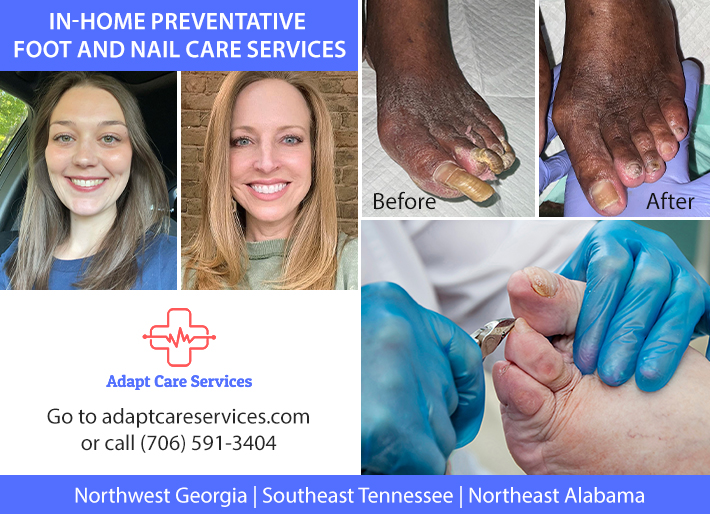Monday, February 29 marked the beginning of the eighth week of the 2016 legislative session, and a crucial day of the session, the 30th legislative day, also known as “Crossover Day.” Crossover Day is the deadline for legislation to be passed out of its chamber of origin to remain eligible for consideration for the session. Crossover Day is typically one of the longest days of our legislative session, as we work diligently to pass House bills to send to our counterparts in the Senate for their review. On Monday, the House passed 48 measures during almost 12 hours of deliberations on the floor. My colleagues and I worked tirelessly on Crossover Day to ensure that meaningful and significant legislation had a chance to be heard and voted on by the full body of the House.
One noteworthy bill that we passed on Crossover Day was House Bill 722, also known as Haleigh’s Hope Act – Part II, to expand the state’s current medical cannabis law. HB 722 would expand the list of qualifying medical conditions permitted to legally possess cannabis oil in Georgia by adding autism, epidermolysis bullosa, HIV, peripheral neuropathy, Tourette’s syndrome, terminal illness, and post-traumatic stress disorder to the existing list. The bill would also allow manufacturers of low tetrahydrocannabinol (THC) oil in other states to ship this oil directly to Georgians who are properly registered with the state’s Department of Public Health. Finally, HB 722 would add low THC oil into the Georgia code section related to driving under the influence to promote safe usage, administration, as well as maintaining the safety of all citizens. During the 2015 legislative session, House Bill 1, the Haleigh’s Hope Act, was passed and signed into law to allow Georgians with certain medical conditions who have obtained cannabis oil legally in another state to possess this oil in Georgia, free from prosecution under state law. HB 1 specified nine qualifying medical conditions permitted to possess cannabis oil, containing a maximum of 5 percent low THC and a maximum amount of 20 fluid ounces of cannabis oil. HB 1 required patients to register with the Georgia Department of Public Health, be placed on the “Low-THC Oil Patient Registry,” receive a recommendation from their physician and a registration card. As we have heard from many families and patients, this treatment has proven to be life-changing for many Georgians, including those who have been given the opportunity to return home since the passage of HB 1 last year. By retaining a narrow scope on the legislation and expanding the access to those who truly need access to the treatment, we are providing a better quality of life for our citizens and their families in our state, while also ensuring the safety of all of our citizens.
The House also passed bipartisan legislation this week in an exciting push to bring the commercial space industry to Georgia. House Bill 734, the Georgia Space Flight Act (GSA), would define procedures for commercial space flight activity to allow Georgia to be more competitive with our neighboring states. The GSA is modeled after legislation in Texas, Limited Liability for Space Flight Activities, and would create a liability shield to protect space flight entities, while properly informing willing space flight participants of their rights. The bill would limit a willing space flight participant’s ability to sue for damages related to spaceflight activities, and would not protect against injuries suffered by non-consenting third parties. Willing space flight participants would be required to provide informed consent and sign a written waiver at least 24-hours before space flight activity under this legislation. This language is the foundation of the bill, mirroring federal regulations for liability coverage and meets an industry standard that is used in all other “space friendly” states, making Georgia competitive in the estimated $330 billion per year space industry. This legislation was created to establish the groundwork for a space program in Georgia, with the proposed site to be located in Camden County. Spaceport Camden would have a direct economic impact on Camden, Charlton, and Glynn counties, as well as a significant impact on STEM related job growth and tourism for the entire state of Georgia. My colleagues and I are committed to supporting and fostering economic development and scientific cultivation because this is what will continue to drive our great state into the future.
We saw the unanimous passage of House Bill 862 this week to update current laws that allow disabled veterans to qualify for the homestead exemption on their ad valorem taxes. HB 862 would allow an eligible disabled veteran to qualify for the homestead exemption by meeting either, rather than both, of the standards required by law. This bill would allow any veteran given honorable discharge determined by the U.S. Department of Veterans Affairs as being 100 percent disabled or being compensated at the 100 percent level as unemployable to qualify for the exemption. Additionally, any veteran entitled to receive a statutory award from the U.S. Department of Veterans Affairs for loss of one or both feet, loss of one or both hands, or loss of sight in one or both eyes may also qualify for the exemption. Prior to the passage of this legislation, the requirements for receiving the homestead tax exemption for disabled veterans were much more difficult to achieve, but by clarifying the language, we will expand the access of the disabled veteran homestead exemption to allow all of Georgia’s disabled veterans to qualify. Any time we are able to give back to our military personnel, we take great pride in doing so, and we are hopeful that with its passage, HB 862 would allow many more of Georgia’s courageous veterans to take advantage of this cost-saving opportunity that they have so rightfully earned.
Another bipartisan measure that passed unanimously on Crossover Day was The Fallen Heroes Bill, or House Bill 54, to honor public service officials killed in the line of duty and their families. This legislation would provide cost free college tuition to children of fallen public safety officials, supplementing the existing Georgia Law Enforcement Personnel Dependents Grant administered by the Georgia Student Finance Commission by providing additional funding to cover tuition expenses not covered by the grant. Grants would be issued to children of law enforcement officers, firefighters, emergency medical technicians, and prison guards employed by the state or other public employer, and Highway Emergency Response Operators of the Department of Transportation who were permanently disabled or killed in the line of duty, who attend institutions of the University System of Georgia and who meet certain eligibility requirements. This bill would allow Georgia taxpayers to voluntarily contribute to this grant program by adding a donation option to their filing forms for Georgia Income Tax forms and Georgia Motor Vehicle Driver’s License forms. Our public safety officials put their lives at risk each and every day to protect Georgia’s citizens and our communities, and in some cases, public safety officials make the ultimate sacrifice in an attempt to keep our communities safer. I was proud to support this legislation to help lessen the financial burden that higher education often presents for the children of those who have selflessly given their lives to protect our great state.
The House also unanimously passed two bills this week to continue our efforts to improve conditions and offer resources for kinship care providers in Georgia. House Bill 934 would authorize the Department of Human Services to provide a separate link or portal on its website to provide information specifically for kinship caregivers. The link or portal would provide information and applications for Georgia’s public assistance benefits available to kinship caregivers, as well as benefits available to the children in their care. Furthermore, House Bill 957 would require judges and clerks of the probate courts to publicly post notice of the availability of the affidavit of indigence, which is a court document excusing an individual from paying court fees at the time if they can prove they do not have the funds. This would ensure kinship caregivers are aware of this resource when filing for guardianship with the probate court. Often times when family members are petitioning for kinship care rights, they do not have the resources to help compensate the household income for the additional members, and as a result, many are faced with the choice of providing food for their family or paying the court fees to secure legal guardianship. With the passage of HB 957, all probate courts would make affidavits of indigence available to the public so that kinship caregivers are aware of this option and aren’t faced with unnecessary financial burdens. By providing our citizens with adequate information, we can help the thousands of children in kinship care and their families receive the support they need, and both of these bills help accomplish that goal.
Now that Crossover Day is behind us, we will be spending time in committee hearings as we take time to carefully review Senate Bills. There are only nine legislative days left to complete our work for the 2016 legislative session, so if you have any questions about the bills I mentioned, or about any that will be considered by either chamber, I hope you will reach out to me in the remaining days. As your representative, your thoughts and opinions on these important issues are essential to my decision-making process, and I appreciate your input. If you are nearby, you are always welcome at your State Capitol, and I would be happy to serve as your host. You can reach me at my Capitol office, which is (404) 656-0325, or by email at Eddie.Lumsden@house.ga.gov.
As always, thank you for allowing me to serve as your State Representative.
Eddie Lumsden













